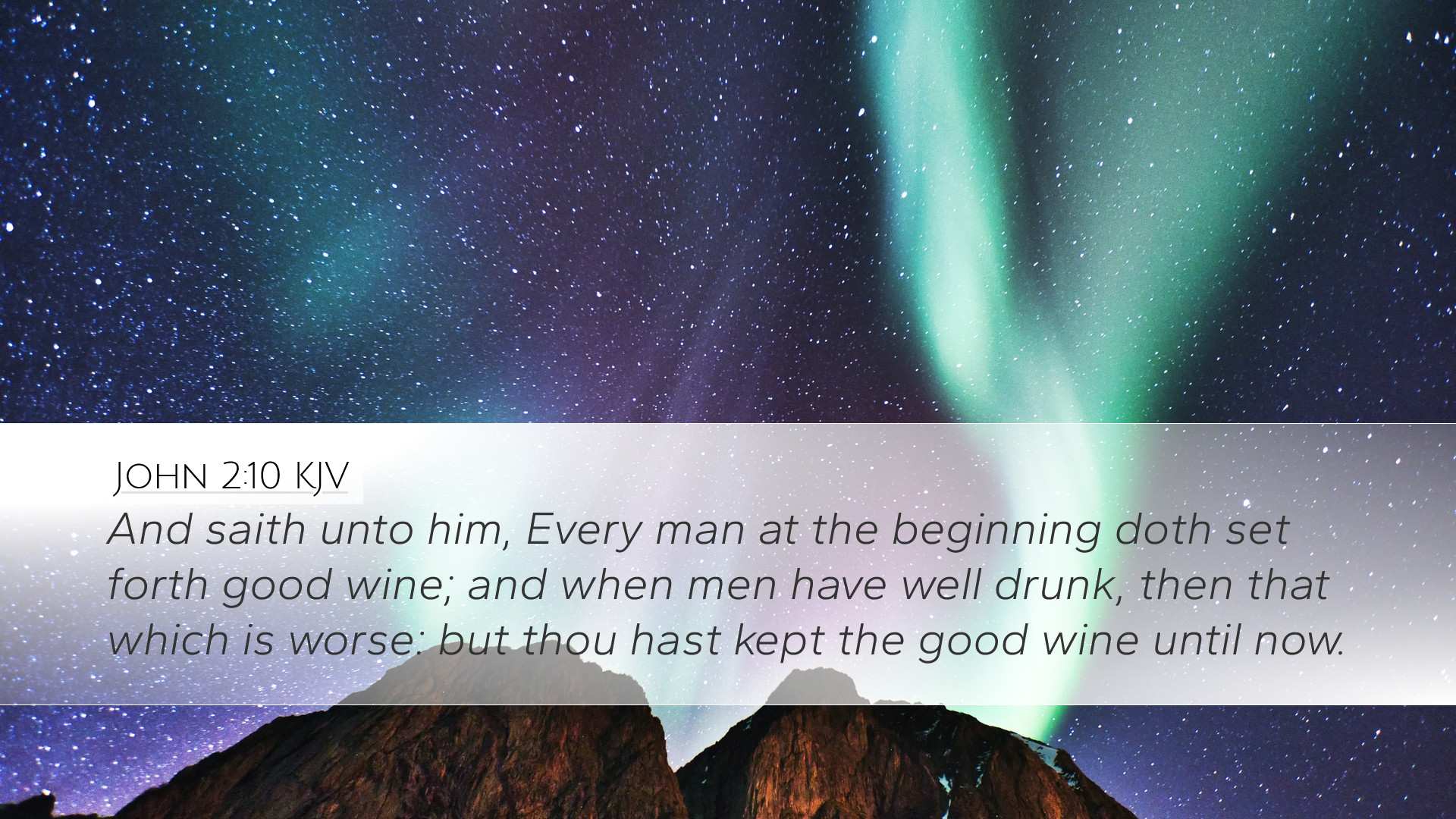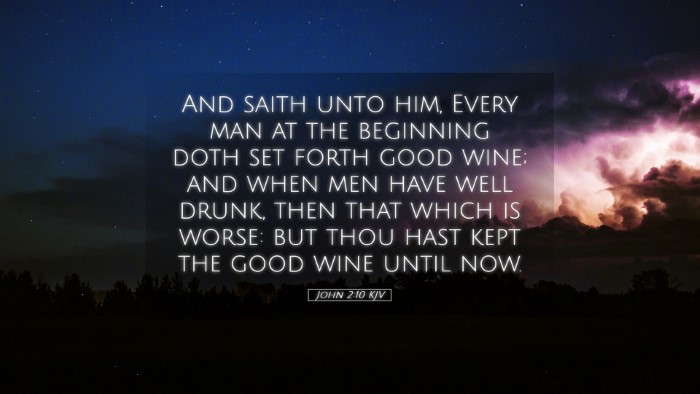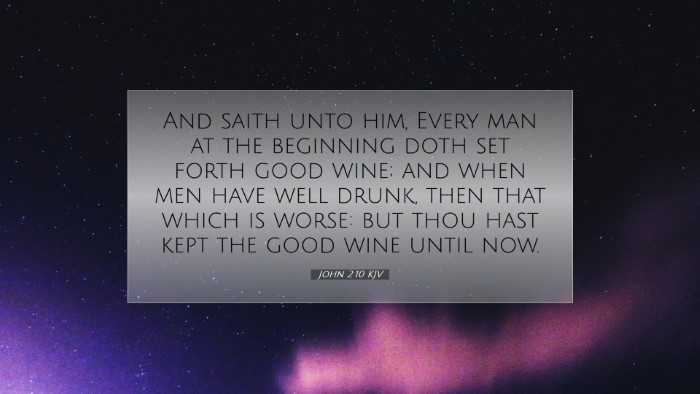Old Testament
Genesis Exodus Leviticus Numbers Deuteronomy Joshua Judges Ruth 1 Samuel 2 Samuel 1 Kings 2 Kings 1 Chronicles 2 Chronicles Ezra Nehemiah Esther Job Psalms Proverbs Ecclesiastes Song of Solomon Isaiah Jeremiah Lamentations Ezekiel Daniel Hosea Joel Amos Obadiah Jonah Micah Nahum Habakkuk Zephaniah Haggai Zechariah MalachiJohn 2:10
John 2:10 KJV
And saith unto him, Every man at the beginning doth set forth good wine; and when men have well drunk, then that which is worse: but thou hast kept the good wine until now.
John 2:10 Bible Commentary
Commentary on John 2:10
John 2:10 states: "And said unto him, Every man at the beginning doth set forth good wine; and when men have well drunk, then that which is worse: but thou hast kept the good wine until now."
This verse takes place during the account of the wedding at Cana, where Jesus performs His first miracle by turning water into wine. This event is rich in theological symbolism and has been extensively commented upon by scholars throughout history. Below, we'll synthesize insights from notable public domain commentaries.
Context of the Miracle
The miracle at Cana serves as a critical starting point for Jesus’ ministry, revealing both His divine authority and the nature of His mission. Scholars like Matthew Henry emphasize that this miracle was not only an act of compassion but also a manifestation of divine glory, marking a transition from the old covenant into the new.
The Purpose of the Miracle
Matthew Henry notes that this miracle is indicative of Christ's role in the transformation of life. The good wine represents the richness of His grace and the new covenant, highlighting the abundance that Jesus brings. Albert Barnes also interprets the good wine as a symbol of the spiritual truths that Jesus imparts, elevating the expectations of His followers.
Significance of the Good Wine
The statement made by the chairman of the feast—“thou hast kept the good wine until now”—highlights several theological implications regarding the nature of Jesus’ ministry. Adam Clarke argues that this phrase can be interpreted as a foreshadowing of the richness of the salvation that Christ offers; just as the better wine is saved for last, so too is the fullness of grace revealed through Christ’s sacrificial death and resurrection.
Theological Implications
- Transformation: The act of turning water into wine symbolizes the transformative power of Christ in the believer’s life, illustrating that through Him, the mundane is made magnificent.
- Abundance: The abundance of wine provided speaks to the abundant life promised by Christ. Both Barnes and Clarke emphasize the idea that faith in Jesus yields blessings that exceed human expectations.
- Timing: The idea that the best wine was saved for last connects to God's timing in human history. Henry draws parallels to the unfolding of redemptive history, where expectations are often surpassed by divine plans.
Application for Believers
For pastors and theologians, John 2:10 serves as a reminder of the faithfulness of God in providing for His people. The good wine symbolizes joy and celebration in the life of a believer, foundational to their walk of faith. Clarke encourages followers of Christ to recognize that, much like the guests at the wedding, they are invited to partake in the joy and abundant life offered by Jesus.
Encouragement in Trials
In moments of trial and uncertainty, the message of the good wine can inspire hope. Just as Jesus transformed the ordinary circumstances of a wedding into a joyous celebration, believers are reminded that their trials can also be transformed through faith. Barnes notes that God's provision often comes at the most unexpected times, urging the faithful to trust in His timing.
Conclusion
In conclusion, John 2:10 encapsulates profound truths about the character of Christ, the nature of His ministry, and the abundant life He offers to humanity. Through an examination of the public domain commentaries by Matthew Henry, Albert Barnes, and Adam Clarke, it is evident that the miracle at Cana is not just a display of power, but a profound revelation of the transformative and exceedingly good nature of the gospel of Jesus Christ.
As congregations and scholars reflect upon this verse, may they be inspired to delve deeper into the richness of God’s grace, recognizing the blessings reserved for those who follow Him.


